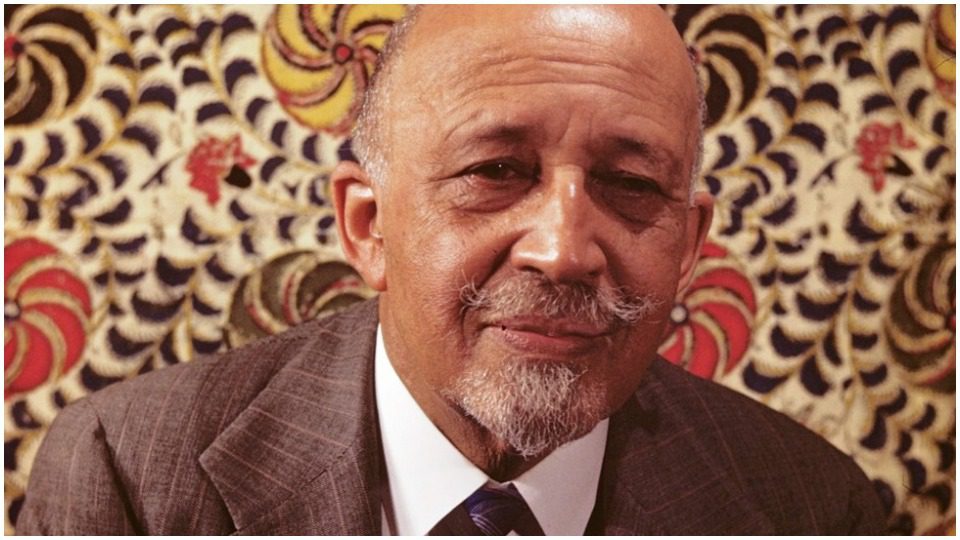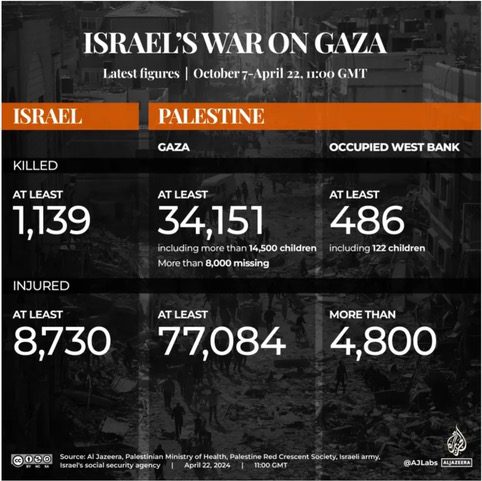Black and Palestinian leaders share their thoughts on W.E.B. DuBois’ foresight: From its 1945 founding in San Francisco to its 2024 hearings in The Hague and New York, the United Nations would fall short when colonized peoples petitioned for intervention against genocide.

by Arlene Eisen
San Francisco – Nearly 80 years after representatives from 50 countries gathered here at the venerable Veterans War Memorial Building to sign the United Nations founding documents, the building still hosts ceremonies, cultural events and conferences. Yet for decades, the site’s glorious past has been eclipsed by waves of the City’s destitute who make the surrounding streets their home.
In 1945, W.E.B. Dubois, the towering Black scholar, NAACP leader and Pan Africanist, served as an advisor to the United States Delegation that met daily in the same Veterans War Memorial Building. He reported:
“We have failed essentially at San Francisco. It is not utter failure but it is failure because we have surrendered the chief fortress without a fight. On this surrendered redoubt, we gallantly flew a flag of human rights and racial, religious and sex equality; but we dragged it down to half-mast by denying to the super state any power to enforce these principles in a particular state except in the unlikely case that the great powers would declare a given area of race hate actually dangerous to world peace.”

Fresh from leading the South African team that presented the case at the ICJ against genocide in Gaza, Dr. Naledi Pandor, minister of International Relations and Cooperation of South Africa, reiterated DuBois’ assessment, albeit in more diplomatic language. She announced at the Ministerial Meeting of the 19th Summit of the Nonaligned Movement:
“It is South Africa’s strong view that we cannot achieve a prosperous and peaceful world without reforming the system of global governance to make it relevant to the world today … a system that is not just a tool for the most powerful countries in the world.”
From San Francisco to the Hague, petitions denied
Throughout the decades bookended by Dr. DuBois’ and Dr. Pandor’s frank assessments, colonized peoples and nations persisted in seeking security from the UN against genocide. In October 1947, DuBois himself presented a petition to the UN for protection of Black people’s human rights. When Eleanor Roosevelt blocked the petition, his response was prescient:
“As long as Great Britain and the United States profess democracy with one hand and deny it to millions with the other, they convince none of their sincerity, least of all themselves. Not only that, but they encourage the aggression of smaller nations.”
A month later, November 1947, UN Resolution 181 ratified the Partition of Palestine. Then, in May 1949, disregarding Palestinian rights to self-determination, essentially ignoring the Nakba that killed and deported half the Palestinian population, the UN recognized and admitted to full membership the state of Israel. By granting Israel impunity in 1949, the UN etched in stone what international UN law expert Professor Ardi Imseis calls Palestine’s “permanent legal subaltern” status.

In a similar vein, Kali Akuno, former executive director of the US Human Rights Network and an eye-witness to Israeli-US efforts to sabotage UN Anti-Racism Conferences in both Durban and Geneva, commented to this reporter:
“Recognition of the state of Israel and subsequent resolutions put the Zionist train on a downhill track and greased its wheels towards its goal of expanding Israel as a Jewish state from the Jordan River to the Mediterranean Sea. This project would eventually lead to mass deportation and genocide of the Palestinian people and Zionism’s alliance with white supremacists worldwide.”
Back in 1949, not one of the five powers in the Security Council blocked the legitimation of Israel’s settler status. This reporter recently asked prominent historian and leading thinker on US settler colonialism, Dr. Gerald Horne, to explain the Soviet Union’s vote. He remarked,
“I might not have said this 15 years ago, but after studying the Left’s ideologically-weak estimates of the Haitian Revolution by people of European descent, I would say that support for partition and Israeli statehood, even by the USSR and Communist Parties, was a manifestation of their eurocentrism.”
In an interview with this reporter, Dr. Rabab Abdulhadi, director of Arab and Muslim Ethnicities and Diasporas Studies and Associate Professor of Ethnic Studies at San Francisco State[1], also elaborated:
“UN member states in 1945 shared a consensus that another Holocaust must be prevented. But they weren’t paying much attention to the horrors against the Asian people of Hiroshima and Nagasaki, or the mass internment of Japanese people inside the US. There were really no anti-colonial voices in the UN then. Even the Soviet Union under Stalin, in the 1940s, was not concerned about colonialism or national oppression. Many Europeans – including Leftists – supported Israel because of their own anti-semitism. They preferred that Europe’s Jews settle in Palestine rather than compete for jobs and housing in war-torn Europe. They loved Israel but they hated Jews.”
Despite these limitations, the UN Convention against Genocide formally went into effect in 1951. That same year a group of 100 noted US defenders of Black peoples’ human rights, led by William Patterson, Paul Robeson and W.E.B. Dubois, became the first delegation in history to apply for redress under the Genocide Convention. The 98-page indictment, called We Charge Genocide, documented how more than 30,000 Black people in the US died per year as a result of the genocidal systemic and structural conditions of racism.
It was the height of the Cold War abroad and Red Scare (and Black Scare) at home. The US government – impelled by its obsession with polishing its reputation as democracy’s most ardent defender – launched a major campaign to discredit the petition. Eleanor Roosevelt dismissed the indictment as “ridiculous.” At the same time, anti-Communist crusader Joseph McCarthy held hearings against the petitioners, and the State Department confiscated Patterson’s passport. Not one UN member nation agreed to take the petition forward. Yet, Professor Alex Hinton, who served as an expert witness at the trial of the Khmer Rouge on charges of genocide, finds the arguments in the 1951 Petition are “very compelling” and still resonate today.
The 1951 precedent has stalked UN proceedings in at least 15 subsequent cases of genocide that slaughtered more than 10 million people, from Palestine to Indonesia; Guatemala to Cambodia; from Congo to Bosnia; from Rwanda to Myanmar, Zanzibar, Uganda, Darfur and more.
“Israel can always count on the US to protect its impunity when it’s the Security Council’s turn to enforce the Court’s ruling.” – Efia Nwangaza
Nevertheless, Nwangaza, US human rights attorney, explained to this reporter that the US Human Rights Network still appealed to UN legal bodies to “name, blame and shame” the perpetrators of genocidal violence.
“We take our case to the UN, not because we expect, in Audre Lorde’s words, ‘to take down the master’s house with the master’s tools.’ The only time the US allowed the Security Council to rule in favor of the Palestinians and other colonized peoples was in competition with the USSR to woo non-aligned nations. Malcolm X failed in his attempt to get the UN to intervene on behalf of Black people in the US, but he succeeded in using that platform to teach millions that Black people have human rights that are not constrained by a constitution and laws written to serve the slaveocracy and its descendants.”
For nearly 80 years, US officials at the UN have reliably and loyally raised their hands to veto any resolution to prevent or limit genocide when that resolution challenges US or Israel’s dominance. In his talk with this reporter, Professor Horne suggested a path towards unraveling this pattern,
“There’s a reshuffling of the deck. The combined economies of BRICS, with their new members and allies, are larger than the combined economies of the United States and its allies. For those of us inside the belly of the beast, our job is to look at the international correlation of forces, divine the motion of history and develop a strategy where we can weaken imperialism in its own backyard, for the betterment of the world and our own lives.”

In her conversation with this writer, Professor Abdulhadi also cited the changing balance of forces. Regarding the UN’s failure to stop the genocide in Palestine, she concluded:
“If they’re going to wait on the international forum to get their liberation, it’s never going to happen … But there was something very significant about the ICJ Case … South Africa, a liberated settler colony, argued the case against Israel on behalf of the Palestinians out of solidarity. Not patronizing at all … they included Palestinian lawyers on their team … (Regarding Biden and the political balance of forces inside the US), When people say, ‘It’s just about Palestine; there are other issues. Palestine is exceptional’ I say, ‘NO.’ Palestine is not exceptional. It is part and parcel of the indivisibility of justice for all.
Arlene Eisen is the author of several influential studies, including Operation Ghetto Storm, the report that first documented and analyzed the extrajudicial killing by police of Black people in the US. The US Human Rights Network presented the report at the 2014 Review of the UN Committee on the Elimination of Racial Discrimination in Geneva. She documented, for the first time, that US police and their surrogates kill a Black person every 28 hours. From Chicago to Oakland, from New York to New Orleans, the hashtag #Every28Hours fueled campaigns that challenged police power. She also wrote, “Women of Viet Nam (Revised),” 1975, which sold 50,000 copies, and her journalism has appeared in many influential publications.

 Store
Store


